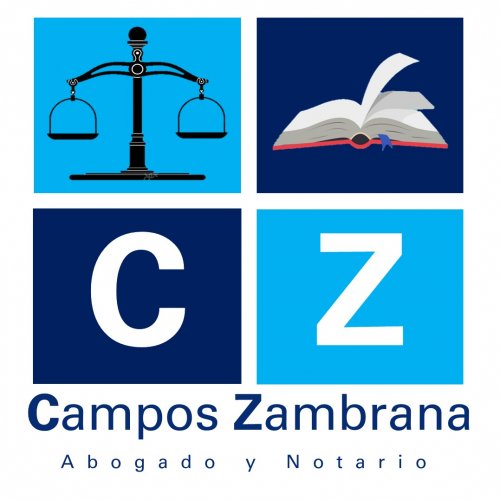Best Elder Law Lawyers in Jinotepe
Share your needs with us, get contacted by law firms.
Free. Takes 2 min.
List of the best lawyers in Jinotepe, Nicaragua
About Elder Law in Jinotepe, Nicaragua
Elder Law in Jinotepe, Nicaragua centers on addressing the legal issues and challenges unique to the aging population. The law covers a variety of categories including long term care planning, retirement benefits, healthcare, power of attorney, and inheritance and estate issues. Although Nicaragua does not have specific legislation dedicated to elder law, several government regulations protect the elderly from abuse, discrimination, and guarantees them a series of rights such as health and social security benefits.
Why You May Need a Lawyer
Engaging an Elder Law attorney may be necessary in a variety of situations. If you are making decisions about long term care or retirement arrangements, clarifying healthcare rights, planning for possible disability, or working through inheritance issues, a lawyer can guide you through the complex legal process. Elder Law lawyers can also help in protecting the rights of the elderly and ensuring they receive the benefits guaranteed under Nicaraguan law. These professionals can also address issues of elder exploitation or abuse.
Local Laws Overview
In Nicaragua, the elderly population is protected by the Law of Older Persons, Law No. 720. This law guarantees the elderly free and priority personal and direct care at any health establishment. Moreover, it provides for free access to cultural, sports and recreational activities. Additionally, the statute provides that elderly individuals have the right to a quality life, physical and emotional health, and social integration and participation. Regarding inheritance and property rights, Civil Code of Nicaragua outlines the legal procedures that are particularly relevant to Elder Law.
Frequently Asked Questions
What is the role of Elder Law attorneys in Nicaragua?
Elder Law attorneys serve as advocates for the elderly and their loved ones. They handle a range of legal matters affecting older or disabled persons including issues related to healthcare, long term care planning, retirement, and guardianship.
At what age is one considered an older person in Nicaragua?
Under Nicaraguan law, individuals are considered elderly or ‘older persons’ from the age of 60.
Can Elder Law attorneys help with retirement and pension issues?
Yes, Elder Law attorneys can help navigate the complexities of retirement planning including pension benefits.
What can be done legally if cases of elder abuse are detected?
Attorneys can take various actions including filing a case with authorities, initiating legal protection measures, and advocating for the rights of the elderly person.
Who will manage affairs if the elderly person becomes unable to do so?
A legal document called a Power of Attorney can be prepared allowing a trusted person to manage financial and health affairs if the elderly person becomes incapable of doing so.
Additional Resources
The Nicaraguan Institute for the Elderly (INPAM) provides various resources and support for issues related to elder law in Nicaragua. They also provide education about the rights of elderly individuals. The National Police force in Nicaragua also has a branch dedicated to dealing with crimes against the elderly.
Next Steps
If you or a loved one is in need of legal assistance related to elder law, consider engaging a local attorney who specializes in this field. A consultation can give you an overview of your legal rights, possible measures to protect those rights, and strategies tailored to your situation. Always verify the credentials and experience of any attorney you decide to work with.
Lawzana helps you find the best lawyers and law firms in Jinotepe through a curated and pre-screened list of qualified legal professionals. Our platform offers rankings and detailed profiles of attorneys and law firms, allowing you to compare based on practice areas, including Elder Law, experience, and client feedback.
Each profile includes a description of the firm's areas of practice, client reviews, team members and partners, year of establishment, spoken languages, office locations, contact information, social media presence, and any published articles or resources. Most firms on our platform speak English and are experienced in both local and international legal matters.
Get a quote from top-rated law firms in Jinotepe, Nicaragua — quickly, securely, and without unnecessary hassle.
Disclaimer:
The information provided on this page is for general informational purposes only and does not constitute legal advice. While we strive to ensure the accuracy and relevance of the content, legal information may change over time, and interpretations of the law can vary. You should always consult with a qualified legal professional for advice specific to your situation.
We disclaim all liability for actions taken or not taken based on the content of this page. If you believe any information is incorrect or outdated, please contact us, and we will review and update it where appropriate.








